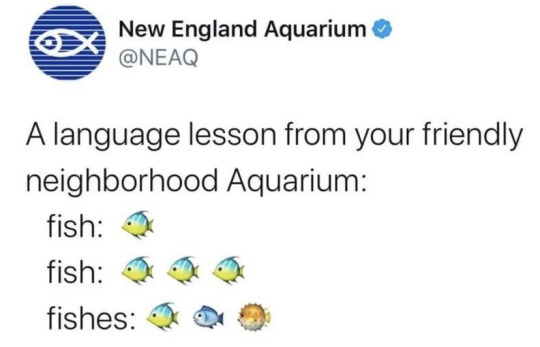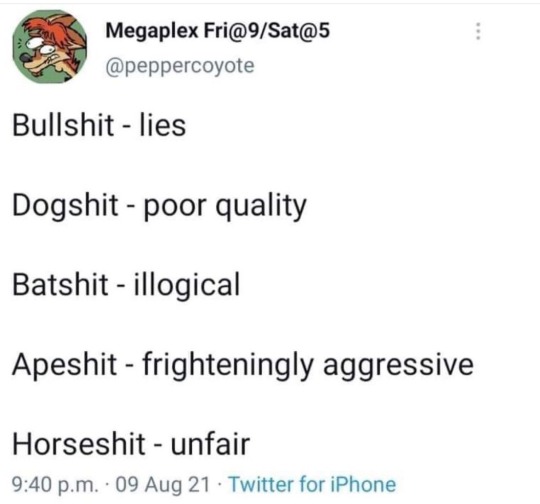I do not think it means what you think it means. A Tumblr for frequently misused or misspelled words
Don't wanna be here? Send us removal request.
Video
tumblr
59K notes
·
View notes
Text
This is correct! Silent reading started to become more common in the Middle Ages, with monks working in large groups in the scriptorium, but it didn’t seem to really come into its own until the 14th or 15th century.
An oft-quoted passage that indicates the rareness of silent reading comes from about 400 CE, when Augustine wrote,
"When Ambrose read, his eyes ran over the columns of writing and his heart searched out the meaning, but his voice and his tongue were at rest. Often when I was present—for he did not close his door to anyone and it was customary to come in unannounced—I have seen him reading silently, never in fact otherwise. I would sit for a long time in silence, not daring to disturb someone so deep in thought, and then go on my way. I asked myself why he read in this way. Was it that he did not wish to be interrupted in those rare moments he found to refresh his mind and rest from the tumult of others' affairs? Or perhaps he was worried that he would have to explain obscurities in the text to some eager listener, or discuss other difficult problems? For he would thereby lose time and be prevented from reading as much as he had planned. But the preservation of his voice, which easily became hoarse, may well have been the true cause of his silent reading." (source)
do you ever think about how recent silent reading is? Reading obviously came with the invention of writing, but writing first didn't even use any punctuation, and for a long time just quite minimal. First written things were continuous and for a long time only meant by reading aloud, meaning that silent reading wasn't a thing for centuries*. And if you think about how recent is education that reaches the majority of people then it is really fucking remarkable that our brain is able to learn to read these squiggles on the screen, or even someone's handwriting. Even in multiple languages! Insane. I've been thinking about this a lot lately
*(I think, don't quote me on it I didn't do research for this post)
902 notes
·
View notes
Text
can someone who knows about you/thou divide in shakespeare help me out bc I just skimmed through all of horatio and hamlet’s interactions to find that hamlet consistently refers to horatio as “you” in act one, but starting with his very heartfelt speech in act 3 scene 2 praising horatio, he consistently uses “thou” until the end of the play (which does, sadly, imply that “o, I could tell you— but let it be.” is not actually directed at horatio…) more interesting to me is that horatio only ever uses “you” to refer to hamlet until after hamlet has died, when we get “goodnight sweet prince, and flights of angels sing thee to thy rest.” does this have to do hamlet with hamlet being dead? or?? what are the general connotations of you/thou at this time (bc I know it has changed over time). why did the changes happen as they did or does literally none of this matter ?
9K notes
·
View notes
Text
IT’S NOT ‘PEEKED’ MY INTEREST
OR ‘PEAKED’
BUT PIQUED
‘PIQUED MY INTEREST’
THIS HAS BEEN A CAPSLOCK PSA
695K notes
·
View notes
Text
I went on quite an etymology adventure today.
So as you can see, my blog name is delphinidin, which is the chemical that makes flowers and fruits blue or blue-ish. I figured the word was from “delphinium,” the blue flower, and I wanted to know if the word delphinium came from Delphi, as in Greece, as in, The Oracle Of.
So I looked up delphinium. Etymonline.com, my usual port of call, was no help in this case, so I used wikipedia:
“The genus name Delphinium derives from the Ancient Greek word δελφίνιον (delphínion) which means “dolphin”, a name used in De Materia Medica for some kind of larkspur. Pedanius Dioscorides said the plant got its name because of its dolphin-shaped flowers.”

Okay, I can see it.
So then I looked up the etymology of Delphi:
“Delphi shares the same root with the Greek word for womb, δελφύς delphys.“
Oookay. I mean, that makes sense, as far as it goes: Delphi is the site of the omphalos, the navel of the earth. But now I had another question: are the words “dolphin” and “womb” connected in Greek??
Aaaaaand…. Yes. Yes, they are:
“Etymologically speaking, the word ‘dolphin’ comes from the ancient Greek delphis, itself related to the Greek delphus, or womb, so the animal’s name more or less means ‘a ‘fish’ with a womb.’ “
So that was a real ride.
71 notes
·
View notes
Text
TIL that the English word “Lord” in the sense of the head of an estate comes from an Old English word of Germanic origins, hlāfweard, later hlāford, later lord.
Normally I wouldn’t remark on my romps through etymology, but “hlafweard” is a compound of hlaf, or loaf, and weard, which means guardian (see also Ward or Warden, etc). Meaning that when you call someone a lord you are calling him an esteemed keeper of the bread.
HEY THERE BREADBOX PETER WIMSEY. LOAF GUARD PALPATINE. BREAD CLIP VETINARI.
Lady also derives from hlaf, but in this case hlafdige or bread kneader. She makes the bread, he monitors it. Women have to do all the work as usual.
Now, the reason I was looking this up was that I wanted to develop a gender-neutral analogue to lord/lady; there are analogues already out there naturally, but the Shivadh must be different and anyway I didn’t like the ones I’d seen suggested online.
Given that the origins of Lord and Lady aren’t all that strongly gendered anyway (they’re about what the person does, not what their gender is), I decided that if a woman is a bread-kneader and a man is a bread-guarder, a nonbinary person should be A BREAD EATER, which would be Hlafetan.
Thus I present to you the gender-neutral analogue to Lord or Lady: Ledan.
31K notes
·
View notes
Text
You know what I think is really cool about language (English in this case)? It’s the way you can express “I don’t know” without opening your mouth. All you have to do is hum a low note, a high note, then another lower note. The same goes for yes and no. Does anyone know what this is called?
382K notes
·
View notes
Text
my dear friends. my beloved followers and mutuals alike. this is a mandatory assessment. report back with your scores
44K notes
·
View notes
Text
One of my favorite things about learning about traditional textiles is the little ghosts they left in the language. Of course the ghosts are there, now that I know to look for them. Once upon a time, half the population spent a majority of their day making textiles. Spinning, at the very least, has been a part of humanity since the Neanderthals. That kind of knowledge doesn't just disappear.
A heckle was a device with sharp metal spikes, and people drag flax through the spikes to separate out the fibers from the chaff. When you say someone heckled a performer, you think you are being literal but you're speaking in an ancient metaphor.
When my grandpa says "spinning yarns" to mean telling stories, he knows that one's not quite literal, but its vividness is lost to him. There is no image in his mind of rhythm, muscle memory, and the subtle twist that aligns clouds of fibers into a single, strong cord.
When a fanfic writer describes someone carding their fingers through someone's hair, that's the most discordant in my mind. Carding is rough, and quick, and sometimes messy (my wool is full of debris, even after lots of washing). The teeth of my cards are densely packed and scratchy. But maybe that's my error, not the writer's. Before cards were invented, wool was combed with wide-toothed combs, and sometimes, in point of fact, with fingers. The verb "to card" (from Middle English) may actually be older than the tools I use, archaic as they are. And I say may, because I can't find a definitive history. People forget, even when the language remembers.
33K notes
·
View notes
Note
I have totally done this with this same word lol
lede:
noun, U.S.
the opening sentence or paragraph of a news article, summarizing the most important aspects of the story.
bury the lede:
verb, U.S.
fail to emphasize the most important part of a story or account.
For years I thought "bury the lede" was incorrect but then I saw a published author do it not 5 minutes ago and went... "Am I the one who is wrong?" So thanks for that quick education sir.
ME TOO ANON. I was like "What is this Lede fuckery, clearly it's Lead" and eventually I too became suspicious and looked it up.....
108 notes
·
View notes
Text

People always correct me when I say fishes even though I’m right
110K notes
·
View notes
Text
tricky words I always see misspelled in fics: a guide
Viscous/vicious – Viscous is generally used to describe the consistency of blood or other thick liquids. Vicious is used to describe something or someone who is violent.
Piqued/Peaked/Peeked – To pique someone’s interest is to catch or tease their attention. When something peaks, it reaches its total height or intensity. To peek (at) something is to look briefly, or glance.
Discrete/Discreet – this is a tough one. Discrete means to be separate, or distinct, i.e., two discrete theories. Conversely, when someone is discreet, they are being secretive or cautious to avoid attention.
Segue/Segway – one is a transition between things, the other is a thing you can ride at the park and definitely fall off of.
Conscious/Conscience/Conscientious – to be conscious is to be awake, i.e., not unconscious, or to be aware of something. Your conscience is the little voice in your head telling you not to eat the entire pint of ice cream. Finally, to be conscientious is to be good, to do things thoroughly, to be ruled by an inner moral code.
Hope this helped! Please add more if you think of them!
49K notes
·
View notes
Photo

The Times Colonist, Victoria BC, May 29, 1953
2K notes
·
View notes
Text
Spam: etymology
"Etymology” refers to the history of a word. How do words come to mean what they do?
The online etymology dictionary gives the etymology of the word “spam”:
In the sense of "internet junk mail" [the term “spam”] was coined by Usenet users after March 31, 1993, when Usenet administrator Richard Depew inadvertently posted the same message 200 times to a discussion group. The term had been used in online text games, and ultimately it is from a 1970 sketch on the British TV show "Monty Python's Flying Circus" wherein a reading of a restaurant's menu devolves into endless repetitions of "spam."
The sketch in question:
youtube
6 notes
·
View notes
Text

a buncha shit
95K notes
·
View notes
Video
youtube
3 notes
·
View notes
Video
tumblr
Full Video: Riekko mukana hiihtoreissulla, Tolkuton Willow ptarmigan included in ski trip
236K notes
·
View notes